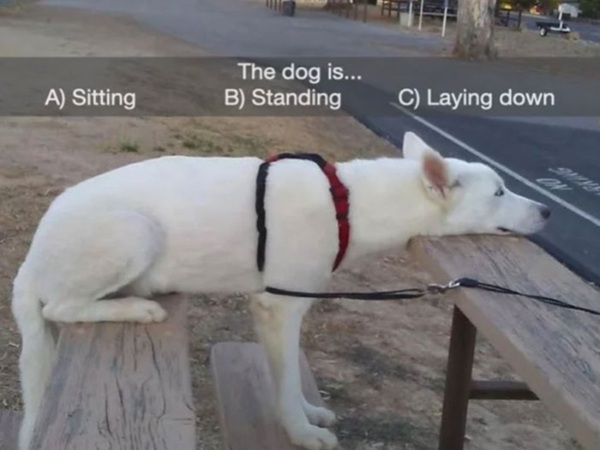Maximizing Success with Online and Offline Marketing Channels Strategies

Key Takeaways

- Understanding Marketing Channels: Knowledge of both online and offline marketing channels is essential for effective customer engagement and business success.
- Advantages of Online Marketing: Online channels like social media, email marketing, and content marketing provide immediate engagement, targeted promotions, and valuable data insights.
- Importance of Offline Marketing: Offline strategies such as print advertising, local events, and grassroots marketing create personal connections and foster community engagement.
- Combining Strategies: A blended approach utilizing both online and offline marketing channels can enhance overall customer retention and drive better results.
- Cost-Effectiveness and Audience Reach: Online marketing often proves more cost-effective while allowing for broader audience reach, whereas offline marketing excels in fostering local community ties.
- Measurement and Analytics: Online marketing offers robust analytics for tracking campaign performance, making it easier to make data-driven decisions compared to offline methods.
In today’s fast-paced world, understanding marketing channels is crucial for your business success. You’ve got a mix of online and offline options at your fingertips, each with unique advantages that can elevate your brand. Whether you’re diving into digital strategies or sticking to traditional methods, knowing how to leverage these channels can make all the difference.
Online marketing channels like social media and email campaigns offer immediate engagement and data-driven insights. On the other hand, offline channels such as print advertising and events create personal connections that resonate with your audience. By exploring both realms, you can craft a comprehensive marketing strategy that reaches your target audience effectively and drives results.
Overview of Marketing Channels

Understanding marketing channels is essential for small businesses to connect with your target market effectively. Two primary categories exist: online and offline marketing channels, each offering unique benefits.
Online Marketing Channels
Online marketing channels provide immediate engagement and data insights. These include:
- Social Media Marketing: Platforms like Facebook and Instagram allow you to engage with your audience directly. Use Facebook Ads to target specific demographics and promote your products.
- Email Marketing: Sending targeted email campaigns can enhance customer loyalty. Segmented email lists allow for personalized promotions and updates.
- Content Marketing: Creating a local blog helps establish your brand’s authority. Share valuable content that resonates with your community to improve your online presence.
- Local SEO: Optimizing your website for local search increases visibility. Use Google My Business to enhance your local listings and manage customer reviews effectively.
- Influencer Marketing: Partner with local influencers to reach new audiences. Influencer collaborations can amplify brand awareness within your community.
Offline Marketing Channels
Offline marketing channels remain vital for community engagement. These include:
- Local Advertising: Utilize flyers, brochures, and local newspaper ads to reach your neighborhood. Highlight promotions and events to catch local interest.
- Event Marketing: Hosting or sponsoring local events creates opportunities for direct interaction. Small business events or community sponsorships foster personal connections with your audience.
- Grassroots Marketing: Leverage word of mouth as a powerful tool. Encourage satisfied customers to share their experiences within the community.
- Local Radio and TV Ads: Create targeted ads for local media. Use local radio and TV to enhance brand visibility among local consumers.
- In-Store Promotions: Implement loyalty programs or local coupons to attract walk-in customers. Tactics such as geotargeting can drive foot traffic to your physical location.
By combining these online and offline marketing channels, you foster a comprehensive marketing strategy tailored to your small business’s needs and enhance overall customer retention.
Online Marketing Channels

Understanding online marketing channels is crucial for small businesses aiming to enhance their online presence and engage effectively with customers. These channels provide a range of tools to connect with your target market, drive sales, and build brand awareness.
Social Media Marketing
Social media marketing empowers you to reach audiences on platforms like Facebook, Instagram, and TikTok. Utilize Facebook Ads and Instagram for business to create targeted campaigns that resonate with your audience. Engaging content fosters community interaction, encourages word of mouth, and enhances your brand’s visibility. Local partnerships and community involvement further amplify your efforts, positioning your business as a trusted local entity.
Email Marketing
Email marketing enables you to send customized messages directly to your customers and prospects. Crafting targeted campaigns helps you engage at various customer journey stages, particularly during consideration. Use email to share local promotions, highlight loyalty programs, and encourage customer reviews. This direct approach fosters customer loyalty and enhances retention rates.
Content Marketing
Content marketing focuses on creating valuable content that informs, entertains, or solves problems for your audience. Whether through blog posts, how-to guides, or videos, your content should resonate with local interests. Consider integrating your local SEO strategy by optimizing for Google My Business and local search terms. Regularly updating a local blog positions your business as a community expert, driving local traffic and engagement.
Search Engine Optimization
Search engine optimization (SEO) improves your website’s visibility in search results. Implementing local SEO techniques can elevate your presence in local listings and directory listings, making it easier for potential customers to find you. Use keywords relevant to your products or services and include location-based ads to attract nearby customers. Optimize your Google My Business profile to enhance local search rankings and showcase Google reviews, further building trust with your audience.
Offline Marketing Channels

Offline marketing channels remain crucial for small businesses aiming to connect with their communities. These traditional methods create personal interactions that can enhance brand awareness and customer loyalty.
Print Advertising
Print advertising includes tangible materials that engage your target market. Utilize newspapers and magazines to reach local customers effectively. Ads in these publications can deliver high visibility among readers not as active online, making it a great choice for local marketing. Flyers and brochures serve as direct communication tools. Distribute these in community centers or local events to promote your products or services personally. The physical touch of print materials often leaves a lasting impression, making them valuable assets in your marketing strategy.
Television and Radio Advertising
Television and radio advertising can significantly broaden your audience reach. Local ads on TV and local radio ads allow you to connect with a diverse demographic in your area. These platforms facilitate brand storytelling and can also highlight your engagement in community events, thereby boosting your local presence. Leverage local sponsorships or grassroots marketing initiatives to increase awareness and recognition in your neighborhood. Advertising during local events or popular programs can maximize your visibility and enhance customer connections.
Direct Mail Marketing
Direct mail marketing targets potential customers directly through their mailboxes. This approach allows you to send tailored offers, local coupons, or invitations to events, fostering a personal touch. Use direct mail to market local promotions or loyalty programs that encourage repeat visits. Combining geotargeting with direct mail strategies ensures your messaging reaches the right audience, increasing the likelihood of engagement. Consider utilizing local listings and platforms like Google My Business to complement your direct mail efforts, enhancing your overall marketing approach.
Comparing Online and Offline Marketing Channels

Understanding the differences between online and offline marketing channels is crucial for small businesses seeking effective strategies. Each channel offers unique advantages that can drive customer engagement and boost your brand.
Cost-Effectiveness
Online marketing typically presents a more cost-effective option for small businesses. It removes the expenses associated with print materials and physical advertising. Digital channels like social media marketing, email campaigns, and local SEO provide affordable ways to engage your target market. For instance, running Facebook Ads or Instagram for business allows precise geotargeting, ensuring your promotions reach local customers. Adjusting campaigns in real-time further enhances cost efficiency, enabling you to maximize return on investment.
In contrast, offline marketing entails higher costs due to print ads, direct mail, and local radio ads. While traditional methods like flyers and brochures can foster community engagement, they often lack measurable performance metrics. This impacts your ability to gauge the effectiveness of your campaigns, making it challenging to optimize for customer loyalty.
Audience Reach
Online marketing excels in audience reach. With a strong online presence, you connect with potential customers globally, avoiding the physical constraints of local advertising. Optimizing your Google My Business profile and ensuring your local listings are updated enhances visibility in local search results, allowing you to tap into nearby consumers effectively.
Offline marketing focuses heavily on local engagement. Strategies like local events, sponsorships, and grassroots marketing strengthen community ties, making your business more relatable. Involvement in neighborhood marketing initiatives builds brand awareness and fosters customer retention through personal connections.
Measurement and Analytics
Online marketing provides robust measurement and analytics tools essential for understanding campaign performance. Tracking metrics from email marketing, social media engagement, and website traffic allows you to make data-driven decisions that enhance your marketing strategy. Utilizing platforms like Yelp and monitoring online reviews contribute to refining your approach and boosting your reputation.
Offline marketing, while valuable for face-to-face engagement, lacks the comprehensive analytics available online. Tracking ROI from local promotions and direct mail campaigns is often more complex. However, employing techniques like local PR and business networking can still yield meaningful feedback on your outreach effectiveness, helping shape your future campaigns and maintain customer loyalty.
Conclusion

Balancing online and offline marketing channels can significantly enhance your business’s reach and effectiveness. By integrating both strategies, you can tap into the strengths of each to create a more robust marketing plan.
Emphasizing personal connections through offline methods while harnessing the immediacy and data-driven nature of online channels allows you to engage your audience on multiple levels. This comprehensive approach not only drives customer acquisition but also fosters loyalty and retention, essential for long-term success.
Ultimately, understanding how to leverage these channels together will empower you to make informed decisions that elevate your brand and connect with your target market.
Frequently Asked Questions

What are the main online marketing channels mentioned?
Online marketing channels include social media marketing, email marketing, content marketing, local SEO, and influencer marketing. These strategies enhance audience engagement, foster brand authority, and improve visibility, helping businesses effectively reach and connect with their target customers.
How does social media marketing benefit businesses?
Social media marketing allows businesses to connect directly with audiences on platforms like Facebook and Instagram. This engagement can lead to increased brand awareness, customer loyalty, and the ability to gather valuable insights from interactions and feedback within these channels.
Why is email marketing important for businesses?
Email marketing enables targeted communication with customers, helping boost retention and loyalty. By crafting personalized messages and offers, businesses can deliver relevant content directly to inboxes, fostering meaningful relationships and encouraging repeat visits.
What are the benefits of offline marketing channels?
Offline marketing channels, such as print advertising and events, play a crucial role in building personal connections with local customers. They enhance brand awareness and loyalty through direct interactions, fostering community ties that can be vital for small businesses.
How does online marketing compare to offline marketing in terms of cost?
Online marketing is generally more cost-effective than offline marketing. It eliminates expenses associated with print materials and physical advertising, allowing for precise targeting and real-time campaign adjustments that maximize return on investment.
What measurement tools are available for online marketing?
Online marketing provides robust measurement and analytics tools that allow businesses to track campaign performance effectively. Data-driven decisions can be made by evaluating metrics such as engagement rates, click-through rates, and conversion rates, enhancing campaign effectiveness.
Can offline marketing still be effective without analytics?
Yes, while offline marketing lacks comprehensive analytics, it can still be effective through personal interactions and grassroots initiatives. Local PR, networking, and face-to-face engagement can yield meaningful feedback and strengthen community ties for businesses.
Image Via Envato
This article, "Maximizing Success with Online and Offline Marketing Channels Strategies" was first published on Small Business Trends
What's Your Reaction?
 Like
0
Like
0
 Dislike
0
Dislike
0
 Love
0
Love
0
 Funny
0
Funny
0
 Angry
0
Angry
0
 Sad
0
Sad
0
 Wow
0
Wow
0






























































































